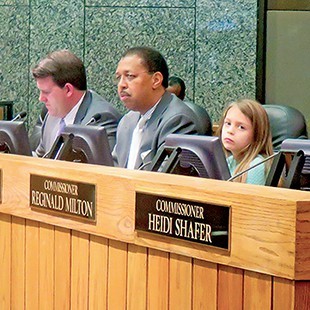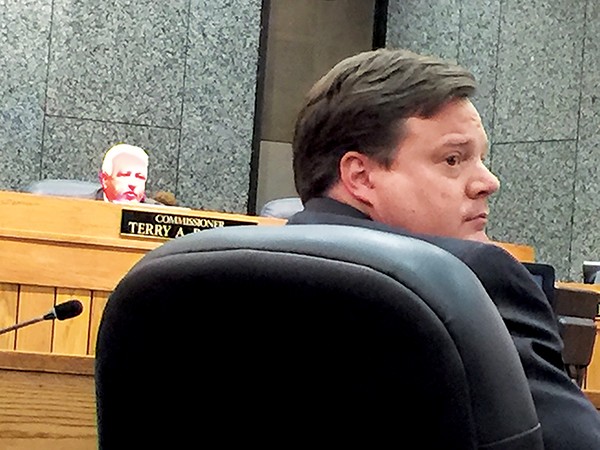There has been no shortage of skeptics about the bona fides of the health-care task force recently appointed by state House Speaker Beth Harwell (R-Nashville) to look into the matter of an alternative to Governor Bill Haslam‘s “Insure Tennessee” proposal for federally funded Medicaid expansion, which was dead on arrival upon its presentation to the General Assembly in last year’s sessions of the General Assembly.
Criticism came from both left and right. Early on, state Democratic Party chair Mary Mancini seemed to dismiss it out of hand in a press release titled “A Task Force Called Meh,” in which she said, “It doesn’t have any actual policy or concrete meeting dates. It doesn’t have the will to actually, you know, do anything. … Once again we are a witness to the failure of the Republican majority to lead.”
Nor was everybody in the state Republican Party exactly blissful about the task force’s creation. At a meeting of the National Federation of Independent Business in Memphis last week, two key GOP state Senators were less than enthusiastic. “It remains to be seen how serious this is as a task force,” said Brian Kelsey (R-Germantown), the state Senate’s Judiciary chair. “I find it curious that the House now has this road show,” said state Senator majority leader Mark Norris (R-Collierville), referring to a series of public hearings the task force has begun statewide.
(Both GOP Senators, it should be noted, were vehement opponents of “Insure Tennessee.”)
To be sure, the task force has evolved since Harwell put it together in early April. Back then, it consisted of four House members, all Republicans: Cameron Sexton of Crossville, the task force chairman, who chairs the House Health Committee; Steve McManus of Memphis, chair of Insurance and Banking Committee; Roger Kane of Knoxville; and Matthew Hill of Jonesborough.
Since then, the Speaker, acquiescing to pressure to diversify the group, has added state Rep. Karen Camper (D-Memphis) and one member from the state Senate, Richard Briggs (R-Knoxville), a physician. Crucially, perhaps, both Camper and Briggs were supporters of “Insure Tennessee.”
The reconstituted task force began holding its public hearings in Nashville last week and intends to hold several more before preparing legislative recommendations, which chairman Sexton says he hopes to have ready by June.
On Monday afternoon, three members of the task force — Sexton, Camper, and McManus — were on hand at the University of Memphis University Center, where they were joined by panelists and audience members representing a diverse group of respondents, including hospital spokespersons, representatives of ad hoc health providers, and prospective patients.
In the spirited discussion that ensued for two hours, there was some evidence that, the critics of left and right notwithstanding, the task force might indeed be up to something serious. A key moment came at the very close of things, when McManus, who in 2015 had adopted an adverse position on “Insure Tennessee” and chaired a brief hearing of his committee to an inconclusive end, responded to some passionately expressed testimony by uninsured and under-insured attendees, mostly low-income people who had invested some hope in the prospects for Medicaid expansion through “Insure Tennessee.”
“We’re going to have something for you,” McManus said, in an emotional statement of his own. Asked later if he thought his group would give serious reconsideration to some version of the governor’s plan. “Absolutely, we will,” he said, adding, “Let’s face it. Back then the matter was a political football.” Meaning that its coupling with the Affordable Care Act, better known among Republicans as “Obamacare,” had doomed the proposal to partisan treatment by the General Assembly’s GOP super-majority.
Typical of a potential sea change among Republicans was a lament by panelist Ron Kirkland, a Jackson physician who ran for Congress in the 8th District GOP primary in 2010, that more than $1 billion annually in Affordable Care Act (ACA) funding had been lost to the state by its failure to endorse “Insure Tennessee.” As Kirkland put it, “We’d have been jumping up and down if that much money was available to the [West Tennessee industrial] mega-site!”
And numerous of the medical-community representatives noted that Medicare funding allotments for Tennessee had been scaled down under the ACA with the idea of fleshing them out again with the Medicaid-expansion component of the Act. Subsequently, the Supreme Court’s ruling that the latter component was not mandatory upon individual states had allowed Tennessee and various other states to opt out of Medicaid expansion, with the unintended consequence of reducing overall medical funding.
Overall, the discussion on Monday seemed pointed more toward solutions of this and other dilemmas than to recapitulating various rhetorical talking points. Perhaps this is one road show that might lead to something real and tangible on the main stage of Tennessee government.
• “Give a mouse a cookie…”: Given the factional divisions on the Shelby County Commission, such as they are, it is a rare thing indeed that Heidi Shafer, the East Memphis Republican who so often speaks for what is arguably the Commission’s dominant coalition, should quote with approval Steve Basar, a fellow Republican but one who often sides with another, predominantly Democratic group.
But so Shafer did on Monday, in the course of her current effort to retard — or at least subject to serious vetting — a proposal to assist the office of District Attorney General Amy Weirich with backup to help process the future use of body cameras by local law enforcement, primarily the Memphis Police Department.
A condensed version of the Basar remark cited by Shafer would go something like this: “Give a mouse a cookie, and he’ll ask for a glass of milk. Then he’ll want another cookie.” And this de facto little aphorism was employed by Shafer as a warning against what she called “mission creep” in the matter of funding Weirich’s office.
The fuller argument, as she and other skeptics have developed it in two of the Commission’s mid-week committee sessions and two of the body’s regular public meetings, boils down even further to a fairly simple formulation: “Why us?” — the idea being (a) that the impetus for use of body cams came from the MPD and city government, and (b) the District Attorney General’s office is a creature of state government, not county government.
Ergo, why should county government have to foot the bill?
That argument has found enough buyers so far to have stymied the initial proposal for a fuller funding of the D.A.’s office in the amount of $143,378. By the time of Monday’s meeting, the issue of direct new funding was off the table — replaced by an offer from the administration of Shelby County Mayor Mark Luttrell to shift residual money in the county’s fund balance to provide “temporary support staff for body camera rollout.”
That support would total out, as finally agreed to by the Commission on Monday, to about $25,000 from the fund balance. And that amount, as Shafer reminded an acquiescent administration CAO Harvey Kennedy, would have to be shared with the Public Defender’s office, which, according to state law, is entitled to funding equivalent to 75 percent of any sums appropriated to a District Attorney General’s office.
Enough stop-gap money will be shifted to endow three temporary employees for the D.A.’s office, along with two for the Public Defender’s office, for a period of roughly a month to assist with body-cam rollout.
To stick with the aforementioned Basar analogy, that compromise solution is less a cookie than a crumb, and it’s a clear signal that, with stiff funding increases sought by the Sheriff’s Department, and even stiffer ones sought by Shelby Couty Schools, the D.A.’s office will face difficulty during forthcoming budget negotiations in getting much more for the body-cam matter.


 Jackson Baker
Jackson Baker 
 JB
JB